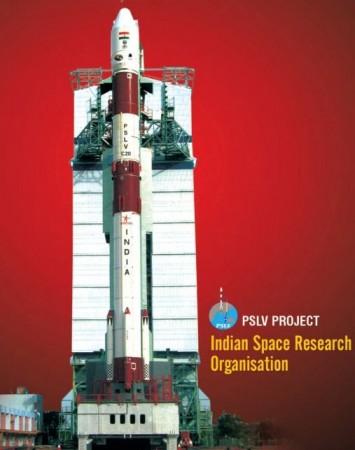
The Indian Space Research Organization (ISRO) has scheduled the launch of the country's first dedicated Indian Regional Navigation Satellite System-1A (IRNSS-1A) for 1 July.
ISRO had initially planned to launch the IRNSS-1A aboard the home-grown polar satellite launch vehicle, PSLV-C22, on 12 June from the launch pad in Sriharkota, Andhra Pradesh. As a result of an technical anomaly in the vehicle, the launch was delayed by 14 days. "During the electrical checks of the launch vehicle, an anomaly was observed in one of the electro-hydraulic control actuators in the second stage. It has been decided to replace this actuator," ISRO earlier said in a statement.
The space agency will now be launching the satellite on 1 July at 23:41 hours (IST) from Satish Dhawan Space Centre in Sriharikota. The IRNSS-1A Spacecraft is mounted on the PSLV-C22 launch vehicle and global checks are in progress. The satellite is the first of the seven navigational satellites that ISRO is planning to launch for an independent navigational satellite system.
According to a BBC report, a minimum of four satellites are required for a smartphone or a vehicle to use the signals and calculate the positional fix. ISRO will be launching the remaining six satellites by 2014-15 to build a constellation of seven satellites that would help users to determine their location and time accurately.
With the launch of the navigational satellite system, India would join the list of countries including China and the European Union (EU) to have a version of the Global Position System (GPS).
India's Mission to Mars
Besides the launch of IRNSS-1A, ISRO has planned to launch other major space missions this year. Of all the missions, the most-ambitious would be the Mars Orbiter mission. The space agency will launch the ₹450-crore Mars Orbiter between October and November this year. The mission is planned to find clues on whether conditions on Mars is suitable for life as well as to learn why the Red planet lacks atmosphere.
American space agency NASA has signed an agreement with ISRO for activities that are related to Mars Orbiter Mission. "NASA is providing deep space navigation and tracking support services to this mission during the non-visible period of the Indian Deep Space Network," according to a US-India joint fact sheet.






![Miss Universe 2024: India's Rhea Singha slayed swimsuit round but failed to reach Top 12 [Watch]](https://data1.ibtimes.co.in/en/full/806361/miss-universe-2024-indias-rhea-singha-slayed-swimsuit-round-failed-reach-top-12-watch.jpg?w=220&h=138)



